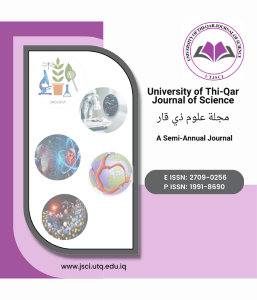Abstract
To test the effectiveness of aspirin in low doses to prevention PE in high risk . Study design: Prospective randomized controlled double blind trial. Setting: Department of Obstetrics & Gynaecology, Al-Habobi teaching hospital, Thi-qar province/Iraq. Patients and methods: 100 participants at high risk of developing preeclampsia were randomly divided into 2 groups. Group I involved 50 pregnant women who received acetyl salicylic acid 75 mg/ day. Group II included 50 pregnant women who received placebo. Primary outcomes included gestational hypertension and pre-eclampsia. Secondary outcomes included development of eclampsia, HELLP syndrome, placental abruption, IUGR, NICU admission, neonatal complications and congenital anomalies. Results: The incidence of preeclampsia was 22% in the Aspirin group and 44% in the control group (P <0.001). A highly significant difference was found when comparing the two groups regarding gestational age at delivery (37.8±1.9 vs. 33.2±3.2 ), development of PE (22% vs. 44%) particularly early onset (14% vs. 34%) and severe form (8 vs. 22%) and occurrence of HELLP syndrome (4 vs. 16%) respectively (P <0.001) . There was a significant difference between cases and controls regarding the development of gestational hypertension (14% VS. 22%) (P 0.05) .There was a significant improvement of neonates delivered to mothers who received aspirin proved by the presence of significant higher birth weight (2989±815 vs. 2062±976), lower occurrence of IUGR (10% vs. 24%), neonatal ICU admission (34% vs. 78%) and respiratory distress syndrome (20% vs. 60%). Conclusion: the use of low-dose aspirin is of significant importance in reducing the risk.
Keywords
aspirin
Preeclampsia
